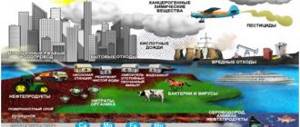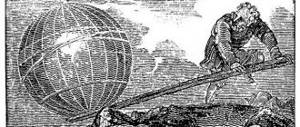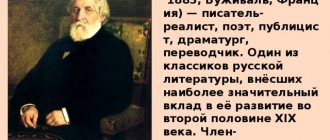Songs of the war years, presentation for a history lesson on the topic
Slide 1
Extracurricular activity during the subject week on history “Salute, Victory!” History teacher Opolovnikova Tamara Nikolaevna Municipal Educational Institution "Lopyuvadskaya Secondary School"
Slide 2
On June 22, 1941, at 3:50 a.m., Nazi Germany attacked our country, the Soviet Union, without warning.
Slide 3
“Who said that there is no place for song in war, after a battle the heart cries for music doubly…” Songs of the war years
Slide 4
Great - 56 states took part in this war. Patriotic - people fought for the freedom and independence of their Fatherland, Motherland. Sacred - each person fought for things that were sacred to him: for his children, for the house in which he was born and raised, for the peaceful sky above his head, for Russian birch trees, in the name of the living and for the sake of the future.
Slide 5
Songs of the war years The Soviet people said goodbye to their native places, so that, having won, they could return home again. To the march “Farewell of the Slavic Woman,” trains with defenders of the Motherland were sent to the front. words by V. Lazarev Music by V. Agapkin
Slide 6
On June 24, 1941, the newspapers Izvestia and Krasnaya Zvezda published a poem by V. I. Lebedev-Kumach, which began with the words: “Get up, huge country, get up for mortal combat...” The poem was read in the newspaper by the head of the Red Banner Song and Dance Ensemble of the Red Army A. V. Alexandrov. It made such a strong impression on him that he immediately sat down at the piano. The next day, coming to the rehearsal, the composer announced: “We will learn a new song - “Holy War.” Music by A. Alexandrov; Words by V. Lebedev - Kumach
Slide 7
Get up, huge country, Get up for mortal combat With the dark fascist force, With the damned horde! Let noble rage boil like a wave, - There is a people's war, a Holy War! Like two different poles, We are hostile in everything: We fight for light and peace, They fight for the kingdom of darkness. Let's fight back the stranglers of all fiery ideas, rapists, robbers, torturers of people! Black wings do not dare to fly over the Motherland, the enemy does not dare to trample its spacious fields! Let's drive a bullet into the forehead of the rotten fascist evil spirits, Let's knock together a strong coffin for the scum of humanity! A huge country is rising, Rising to the death, With the dark fascist force, With the damned horde. Let noble rage boil like a wave, - There is a people's war, a Holy War!
Slide 8
music E. Peterbursky, lyrics. Y. Galitsky
Slide 9
I remember how on a memorable evening your handkerchief fell from your shoulders, how you saw off and promised to save the blue handkerchief. And even if my beloved, dear, is not with me today, I know that with love you hide your handkerchief at the head of the road. Receiving your letters, I hear a living voice, And between the lines, the blue handkerchief rises before me again. And often your image accompanies me into battle. I feel nearby with a loving gaze You are always with me. How many treasured handkerchiefs We carry with us in our overcoats, Tender speeches, Girlish shoulders We remember in the suffering of battle. For them, relatives, desired, loved ones, the machine gunner scribbles for the blue handkerchief that was on the shoulders of the dear ones!
Slide 10
words by V. Agatov, music by N. Bogoslovsky One of the most popular songs of the war years, “Dark Night,” was written by Nikita Bogoslovsky and Vladimir Agatov for the film “Two Fighters” in the spring of 1942. The film told about the front-line friendship of two soldiers, whose roles were played by Boris Andreev and Mark Bernes. The idea to “revive” the episode in the dugout with a lyrical song arose spontaneously. The melody was written by the composer literally in one evening. But there was no text. At this time, poet Vladimir Agatov arrived from the front in Tashkent, where the film was filmed. We turned to him. After listening to the melody, he immediately jotted down the words. In this form, without any changes, the song was included in the film. According to Konstantin Simonov, in the spring of 1943, “Dark Night” “was on the lips of literally every front-line soldier,” because “it contained the thoughts and feelings of millions of people.”
Slide 11
Dark night, only bullets whistle across the steppe, Dark night, only bullets whistle across the steppe, Only the wind hums in the wires, the stars twinkle dimly. On a dark night, my beloved, I know you are not sleeping, And by the crib you are secretly wiping away a tear. How I love the depth of your tender eyes, How I want to press my lips to them now! The dark night divides us, beloved: And the alarming, black steppe lies between us. I believe, I believe in you, my dear friend, This faith kept me from a bullet on a dark night... I am happy, I am calm in mortal combat, I know that you will meet me with love, no matter what happens to me. Death is not scary, we have encountered it more than once in the steppe... And now it is circling above me. You wait for me and don’t sleep by the crib, And that’s why I know: nothing will happen to me.
Slide 12
“In the Dugout” One of the most lyrical songs of the war years, “In the Dugout,” was “born” completely by accident. The text of the song was a poem written in November 1941 by the poet and journalist Alexei Surkov, which he dedicated to his wife Sofya Antonovna and wrote in a letter. In February 1942, Surkov's warm and deeply personal lines inspired composer Konstantin Listov so much that he wrote music for them. He became the first performer of this song. On March 25, 1942, the song “In the Dugout” was published in Komsomolskaya Pravda. By that time, both the fighters and those who were waiting for them loved and sang it. music K. Listova, lyrics. A. Surkova
Slide 13
The fire beats in the cramped stove, There is resin on the logs, like a tear. And the accordion sings to me in the dugout about your smile and eyes. The bushes whispered to me about you in the snow-white fields near Moscow, I want you to hear how my living voice yearns. I want you to hear how my living voice yearns. You are now far, far away, There is snow and snow between us. It’s not easy for me to get to you, And to death there are four steps. Sing, harmonica, in spite of the blizzard, call for lost happiness. I feel warm in the cold dugout from your unquenchable love. I feel warm in the cold dugout from your unquenchable love. The fire beats in the cramped stove, There is resin on the logs, like a tear. And the accordion sings to me in the dugout about your smile and eyes. The bushes whispered to me about you in the snow-white fields near Moscow, I want you to hear how my living voice yearns. I want you to hear how my living voice yearns.
Slide 14
In the fall of 1940, poet Yakov Shvedov and composer Anatoly Novikov wrote a song suite about Moldavian partisans. The suite was written at the request of the political administration of the Kyiv Military District for the district song and dance ensemble. It included seven songs, including “Darkie,” a song about a partisan girl. Written on the basis of Moldavian folklore, it was lyrical and playful in nature. When the Great Patriotic War began, Novikov’s notes from this cycle disappeared. Only rough sketches have survived. Having restored some songs, the composer decided to show “Darkie” on the radio. But there she was rejected. - What kind of song is this about love, a date, parting, about some dark-skinned Moldavian girl? After all, there is such a difficult war going on now... You are the author of heroic songs, they told Novikov. These arguments sounded very convincing, and “Darkie” was thrown into the farthest drawer of the desk. She probably would have remained there if not for one incident. “One day in 1944, the artistic director of the Red Banner Ensemble A. V. Alexandrov called me,” Novikov recalled, “and asked if I had any new songs.” I brought him several new products, including “Darkie.” To my great surprise, it was this cheerful, lyrical song about the love of a Moldavian girl that the famous musician liked most. “Smuglyanka” was loved by the soldiers, and although it spoke about the partisans of the Civil War, it was perceived as a song for today.
Slide 15
One summer at dawn I looked into the neighboring garden. There a dark Moldavian woman is picking grapes. I blush, I turn pale, I suddenly wanted to say: Let’s stand over the river to greet the summer dawns! Chorus: Green curly maple, carved leaf, I am in love and embarrassed before you. Green maple, and curly maple, and curly, carved! And the dark-skinned Moldavian woman answered the guy in harmony: - Partisan, Moldavian We are gathering a detachment. Today the partisans left their home early. The road to the partisans in the dense forest awaits you. Chorus. And the dark-skinned Moldavian woman went along the path into the forest. I saw the insult in that I didn’t invite you with me. I often thought about the dark-skinned Moldavian girl at night... Soon I met the dark-skinned girl again in the detachment. Chorus: Green curly maple, carved leaf, - Hello, tambourine guy, my dear, - Green maple, and curly maple, Yes, curly, carved! 1940 music by A. Novikov lyrics by Y. Shvedova
Slide 16
We brought this day closer as best we could.
Slide 17
April 30, 1945 - M. Egorov and M. Kantaria raised the Soviet flag over the Reichstag. April 21, 1945 - the first Soviet troops entered Berlin April 30, 1945 - Berlin was captured On May 8 in Berlin, Field Marshal Keitel signed the act of surrender of Germany in the presence of representatives of the Soviet, American, French, and British military command.
Slide 18
Victory Day, how far it was from us, Like a coal melting in an extinguished fire. There were miles, scorched, in dust, - We brought this day closer as best we could. Chorus: This Victory Day smells like gunpowder, This is a holiday With gray hair at the temples. This is joy with tears in your eyes. Victory Day! Victory Day! Victory Day! Days and nights at the open-hearth furnaces Our Motherland did not close its eyes. Days and nights we fought a difficult battle - We brought this day closer as best we could. Hello, mom, not all of us have returned. I wish I could run barefoot through the dew! We walked half of Europe, half of the Earth, - We brought this day closer as best we could.
Slide 19
Happy Victory Day!
Songs of the war years..." - presentation
Songs of the war years..."
War and song, what could be in common? It would seem that the hardships and suffering of wartime leave no room for songs. And yet, the song always accompanied the soldier. Songs were necessary for soldiers during the war. And on the campaign, and at a halt, and even in battle, THEY inspired the fighters. In moments of rest, the song allowed you to relax, take a break, and in decisive moments it helped you to mobilize, gather all your strength, and protect yourself from weakness and panic. And how many songs about war were created! Sometimes only a song, with its life-like lyrics and music, saved, supported, gave morale and simply united...
June 22, 1941... The peaceful life of people was interrupted. Dreams, love, happiness - everything was scorched by the fire of a cruel, bloody war.
The Soviet people said goodbye to their native places, so that, having won, they would return to the conquered and avenged land. Trains with defenders of the Motherland were sent to the bloody battlefield to the march “Farewell of the Slavic Woman,” which was written by V. Lazarev (poems) and V. Agapkin (music).
On June 24, 1941, the newspapers Izvestia and Krasnaya Zvezda published a poem by V. I. Lebedev-Kumach, which began with the words: “Get up, huge country, get up for mortal combat...” The poem was read in the newspaper by the head of the Red Banner Song and Dance Ensemble of the Red Army A. V. Alexandrov. It made such a strong impression on him that he immediately sat down at the piano. The next day, coming to the rehearsal, the composer announced: “We will learn a new song - “Holy War.” Music by A. Alexandrov; Words by V. Lebedev - Kumach
sl. M. Isakovsky, music. M. Blanter We all love darling Katyusha, We love to listen to how she sings, Shakes the soul out of an enemy, And gives courage to friends If a stray bullet suddenly overtakes you on the far side Don’t be sad then, my dear Tell the whole truth
One of the most lyrical songs of the war years, “In the Dugout,” was “born” completely by accident. The text of the song was a poem written in November 1941 by the poet and journalist Alexei Surkov, which he dedicated to his wife Sofya Antonovna and wrote in a letter. In February 1942, Surkov's warm and deeply personal lines inspired composer Konstantin Listov so much that he wrote music for them. He became the first performer of this song. On March 25, 1942, the song “In the Dugout” was published in Komsomolskaya Pravda. By that time, both the fighters and those who were waiting for them loved and sang it. music K. Listova, lyrics. A. Surkova
music E. Petersbursky, lyrics. Y. Galitsky On the twenty-second of June, at exactly four o’clock Kyiv was bombed, they announced to us that the war had begun
One of the most popular songs of the war years, “Dark Night,” was written by Nikita Bogoslovsky and Vladimir Agatov for the film “Two Soldiers” in the spring of 1942. The film told about the front-line friendship of two soldiers, whose roles were played by Boris Andreev and Mark Bernes. The idea to “revive” the episode in the dugout with a lyrical song arose spontaneously. The melody was written by the composer literally in one evening. But there was no text. At this time, poet Vladimir Agatov arrived from the front in Tashkent, where the film was filmed. We turned to him. After listening to the melody, he immediately jotted down the words. In this form, without any changes, the song was included in the film. According to Konstantin Simonov, in the spring of 1943, “Dark Night” “was on the lips of literally every front-line soldier,” because “it contained the thoughts and feelings of millions of people.” words by V. Agatov, music by N. Bogoslovsky
music by Anatoly Novikov lyrics by Yakov Shvedov
The war lasted for five years, and every year gave birth to more and more new songs. They fostered hatred of the enemy, glorified the Motherland, courage, bravery, military friendship - everything that helped to overcome military difficulties that were countless... And here it is, the long-awaited VICTORY!!!
We brought this day closer as best we could... words by V. Kharitonov music by D. Tukhmanov
As the writer Ilya Ehrenburg said, “we didn’t want this war.” But, despite all the difficulties, the long-awaited Victory Day has arrived. Today we want to once again thank all those who gave us the right to life.







